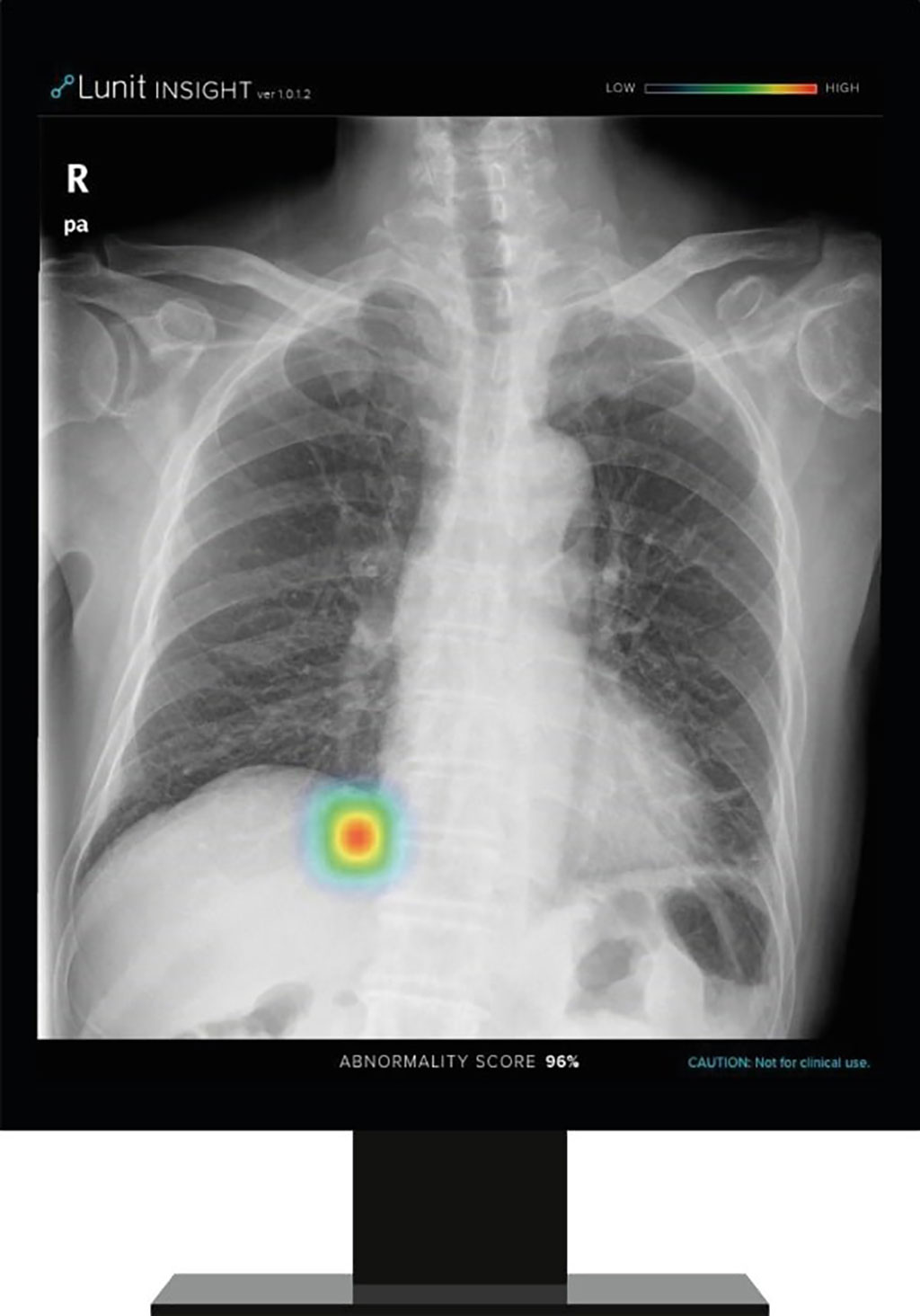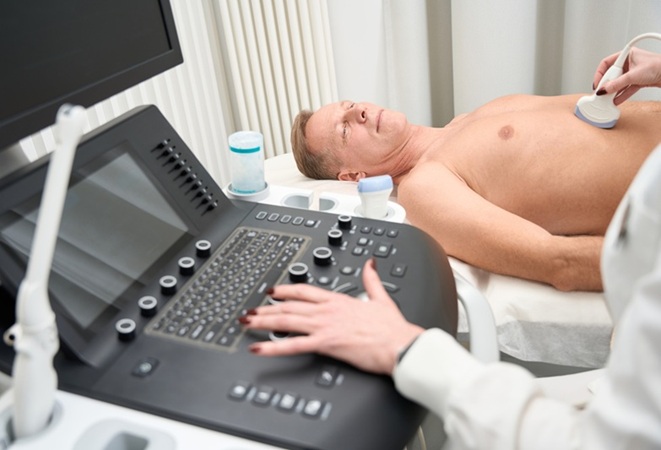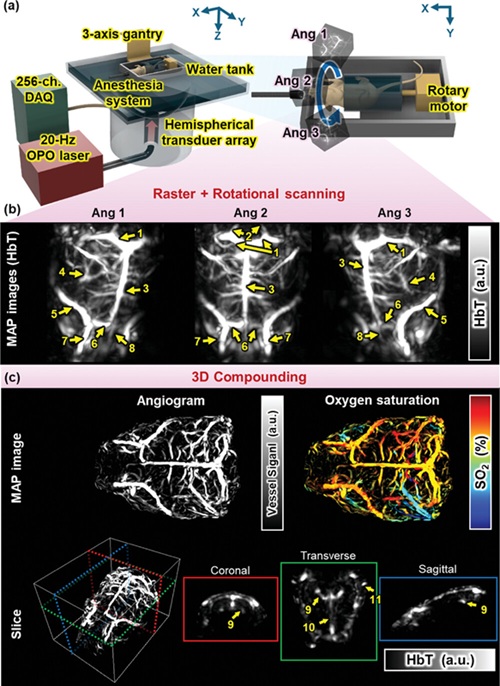New AI Software Accurately Detects Lung Cancers on X-Rays and Cuts Unnecessary Chest CT Scans by 30%
|
By MedImaging International staff writers Posted on 06 Aug 2021 |

Illustration
A recent study has shown that a deep learning-based artificial intelligence (AI) algorithm can improve the performance of readers in detecting lung cancers on chest radiographs.
According to the second joint study conducted by Massachusetts General Hospital (Boston, MA, USA) and Lunit Inc. (Seoul, Korea), AI had 28% sensitivity benefit for radiology residents, helping them properly recommend CT exams for potential lung cancer patients, and 30% specificity benefit for radiologists in lung cancer detection, reducing unnecessary CT exams. The joint research team has previously focused on validating the accuracy of AI, and proved that Lunit INSIGHT CXR, an AI software for analyzing chest X-rays, can accurately detect malignant pulmonary nodules, which can cause lung cancer. In this consecutive study, the team focused on whether AI can affect the performance of medical professionals in finding lung cancers.
For the study, 519 images of cancer-positive and cancer-negative patients were selected from the National Lung Screening Trial (NLST). Eight readers, including three radiology residents and five board-certified radiologists, participated in the reading. By comparing the analysis of the readers and Lunit INSIGHT CXR, the result showed that AI could lead to more efficient and precise diagnosis for both doctors and patients. With AI, radiology residents were able to recommend 28% more chest CT examinations for patients who may have potential risk of lung cancer. Also, radiologists recommended about 30% lesser proportion of unnecessary chest CT examinations in cancer-negative patients.
"The use of AI could help to detect pulmonary nodules accurately with chest X-rays, as well as reduce the need for unnecessary chest CT exams in some patients," said Mannudeep K. Kalra, MD, a radiologist at the MGH and Co-investigator on the study. "This finding can benefit patients by enabling them to avoid unneeded radiation exposure, and it can benefit the healthcare system by preventing certain medical costs."
"Chest X-ray is the firsthand diagnostic tool to detect lung cancer, but it has limitations as it is a compressed 2D rendering of 3D human structures," said Brandon Suh, CEO of Lunit. "An accurate analysis through Lunit INSIGHT CXR can help medical professionals provide diagnosis to patients with increased efficiency - preventing potential cancer at an early stage, while saving time and cost for those who do not need a further examination."
Related Links:
Massachusetts General Hospital
Lunit Inc.
According to the second joint study conducted by Massachusetts General Hospital (Boston, MA, USA) and Lunit Inc. (Seoul, Korea), AI had 28% sensitivity benefit for radiology residents, helping them properly recommend CT exams for potential lung cancer patients, and 30% specificity benefit for radiologists in lung cancer detection, reducing unnecessary CT exams. The joint research team has previously focused on validating the accuracy of AI, and proved that Lunit INSIGHT CXR, an AI software for analyzing chest X-rays, can accurately detect malignant pulmonary nodules, which can cause lung cancer. In this consecutive study, the team focused on whether AI can affect the performance of medical professionals in finding lung cancers.
For the study, 519 images of cancer-positive and cancer-negative patients were selected from the National Lung Screening Trial (NLST). Eight readers, including three radiology residents and five board-certified radiologists, participated in the reading. By comparing the analysis of the readers and Lunit INSIGHT CXR, the result showed that AI could lead to more efficient and precise diagnosis for both doctors and patients. With AI, radiology residents were able to recommend 28% more chest CT examinations for patients who may have potential risk of lung cancer. Also, radiologists recommended about 30% lesser proportion of unnecessary chest CT examinations in cancer-negative patients.
"The use of AI could help to detect pulmonary nodules accurately with chest X-rays, as well as reduce the need for unnecessary chest CT exams in some patients," said Mannudeep K. Kalra, MD, a radiologist at the MGH and Co-investigator on the study. "This finding can benefit patients by enabling them to avoid unneeded radiation exposure, and it can benefit the healthcare system by preventing certain medical costs."
"Chest X-ray is the firsthand diagnostic tool to detect lung cancer, but it has limitations as it is a compressed 2D rendering of 3D human structures," said Brandon Suh, CEO of Lunit. "An accurate analysis through Lunit INSIGHT CXR can help medical professionals provide diagnosis to patients with increased efficiency - preventing potential cancer at an early stage, while saving time and cost for those who do not need a further examination."
Related Links:
Massachusetts General Hospital
Lunit Inc.
Latest Imaging IT News
- New Google Cloud Medical Imaging Suite Makes Imaging Healthcare Data More Accessible
- Global AI in Medical Diagnostics Market to Be Driven by Demand for Image Recognition in Radiology
- AI-Based Mammography Triage Software Helps Dramatically Improve Interpretation Process
- Artificial Intelligence (AI) Program Accurately Predicts Lung Cancer Risk from CT Images
- Image Management Platform Streamlines Treatment Plans
- AI-Based Technology for Ultrasound Image Analysis Receives FDA Approval
- AI Technology for Detecting Breast Cancer Receives CE Mark Approval
- Digital Pathology Software Improves Workflow Efficiency
- Patient-Centric Portal Facilitates Direct Imaging Access
- New Workstation Supports Customer-Driven Imaging Workflow
Channels
MRI
view channel
Ultra-Powerful MRI Scans Enable Life-Changing Surgery in Treatment-Resistant Epileptic Patients
Approximately 360,000 individuals in the UK suffer from focal epilepsy, a condition in which seizures spread from one part of the brain. Around a third of these patients experience persistent seizures... Read more
AI-Powered MRI Technology Improves Parkinson’s Diagnoses
Current research shows that the accuracy of diagnosing Parkinson’s disease typically ranges from 55% to 78% within the first five years of assessment. This is partly due to the similarities shared by Parkinson’s... Read more
Biparametric MRI Combined with AI Enhances Detection of Clinically Significant Prostate Cancer
Artificial intelligence (AI) technologies are transforming the way medical images are analyzed, offering unprecedented capabilities in quantitatively extracting features that go beyond traditional visual... Read more
First-Of-Its-Kind AI-Driven Brain Imaging Platform to Better Guide Stroke Treatment Options
Each year, approximately 800,000 people in the U.S. experience strokes, with marginalized and minoritized groups being disproportionately affected. Strokes vary in terms of size and location within the... Read moreUltrasound
view channel
Tiny Magnetic Robot Takes 3D Scans from Deep Within Body
Colorectal cancer ranks as one of the leading causes of cancer-related mortality worldwide. However, when detected early, it is highly treatable. Now, a new minimally invasive technique could significantly... Read more
High Resolution Ultrasound Speeds Up Prostate Cancer Diagnosis
Each year, approximately one million prostate cancer biopsies are conducted across Europe, with similar numbers in the USA and around 100,000 in Canada. Most of these biopsies are performed using MRI images... Read more
World's First Wireless, Handheld, Whole-Body Ultrasound with Single PZT Transducer Makes Imaging More Accessible
Ultrasound devices play a vital role in the medical field, routinely used to examine the body's internal tissues and structures. While advancements have steadily improved ultrasound image quality and processing... Read moreNuclear Medicine
view channel
Novel PET Imaging Approach Offers Never-Before-Seen View of Neuroinflammation
COX-2, an enzyme that plays a key role in brain inflammation, can be significantly upregulated by inflammatory stimuli and neuroexcitation. Researchers suggest that COX-2 density in the brain could serve... Read more
Novel Radiotracer Identifies Biomarker for Triple-Negative Breast Cancer
Triple-negative breast cancer (TNBC), which represents 15-20% of all breast cancer cases, is one of the most aggressive subtypes, with a five-year survival rate of about 40%. Due to its significant heterogeneity... Read moreGeneral/Advanced Imaging
view channel
AI Model Significantly Enhances Low-Dose CT Capabilities
Lung cancer remains one of the most challenging diseases, making early diagnosis vital for effective treatment. Fortunately, advancements in artificial intelligence (AI) are revolutionizing lung cancer... Read more
Ultra-Low Dose CT Aids Pneumonia Diagnosis in Immunocompromised Patients
Lung infections can be life-threatening for patients with weakened immune systems, making timely diagnosis crucial. While CT scans are considered the gold standard for detecting pneumonia, repeated scans... Read moreImaging IT
view channel
New Google Cloud Medical Imaging Suite Makes Imaging Healthcare Data More Accessible
Medical imaging is a critical tool used to diagnose patients, and there are billions of medical images scanned globally each year. Imaging data accounts for about 90% of all healthcare data1 and, until... Read more
Global AI in Medical Diagnostics Market to Be Driven by Demand for Image Recognition in Radiology
The global artificial intelligence (AI) in medical diagnostics market is expanding with early disease detection being one of its key applications and image recognition becoming a compelling consumer proposition... Read moreIndustry News
view channel
GE HealthCare and NVIDIA Collaboration to Reimagine Diagnostic Imaging
GE HealthCare (Chicago, IL, USA) has entered into a collaboration with NVIDIA (Santa Clara, CA, USA), expanding the existing relationship between the two companies to focus on pioneering innovation in... Read more
Patient-Specific 3D-Printed Phantoms Transform CT Imaging
New research has highlighted how anatomically precise, patient-specific 3D-printed phantoms are proving to be scalable, cost-effective, and efficient tools in the development of new CT scan algorithms... Read more
Siemens and Sectra Collaborate on Enhancing Radiology Workflows
Siemens Healthineers (Forchheim, Germany) and Sectra (Linköping, Sweden) have entered into a collaboration aimed at enhancing radiologists' diagnostic capabilities and, in turn, improving patient care... Read more

















